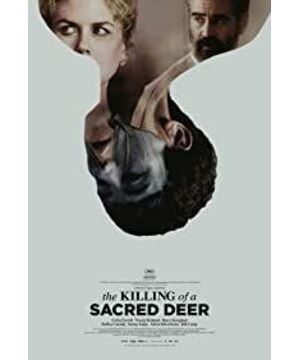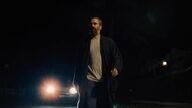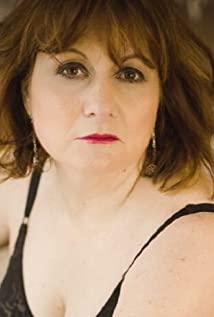After watching "Death of the Sacred Deer" last night, I put aside its classical physique. The most impressive thing is that the doctor's father who killed his father by mistake has never admitted this to his family. . The explanation of the truth is revealed through the wife's "dedication", which makes people feel a little chilly. So I once felt that as long as the doctor stood up and confessed his guilt publicly and chose to sincerely repent and self-examine, he could be forgiven and the curse of his family members could be lifted. However, unexpectedly, the doctor’s choice was to listen to the son of the victim of witchcraft, and to choose the person who should die from his family, so as to achieve a life-for-life justice. When deciding who the wife, son, and daughter should be sacrificed, the doctor chose another just method, which created a more cruel irony. Because the real justice seems to be that the murderer’s life should be equal to the murdered’s life, that is, the doctor father should choose to commit suicide to replace the father of another family he killed by mistake. However, the murderer here has become a new round of sanctions, standing alone with a shotgun and shooting at the family members who are tied to the chair. And the family, as her wife said when she was seeking the truth, "Why should he punish us for his own mistakes?"
I noticed that the reason that prompted my father to choose the last method of sacrifice was that the three family members actively hinted to him a kind of value to him before "dying." The son cut off the long hair he had always loved but his father did not love. The daughter chose to run away from home and when she was picked up, she showed emotionally that she could die for this family (the previous scene was I told my brother, after you die, can you leave your mp3 to me), and the wife lusted and promised her husband, "We can have another child without the child, you can, and I can also." The son represents obedience, the daughter represents sensibility, and the wife is hope. Either way is difficult to choose, so he finally chose the fair way. It is a passive choice.
In the last scene, the doctor's family showed a kind of arrogance after a "long illness" in the face of the boy who lost his father. The daughter who was cursed unable to eat and couldn't walk, ate a plate of French fries in front of the boy. After finishing, he got up from his chair and walked out of the restaurant. At this point, the fairness of "one life worth one life" that seemed to have been realized before has been broken again. Whether it is a three-to-one form or a family that still has a broken core against another family, it is unjust. After losing a child, the family of the doctors who were murderers showed their superiority over evil in a high-profile manner, and the boy who cast the spell was still alone with a widowed mother who had no job. The curse did not destroy the murderer and the murderer's family, nor did he exchange for the confession of the murder, nor did he exchange his life for his dead father, and did not achieve the justice he wanted to achieve. It is used to show that there is no absolute justice in this world.
View more about The Killing of a Sacred Deer reviews











